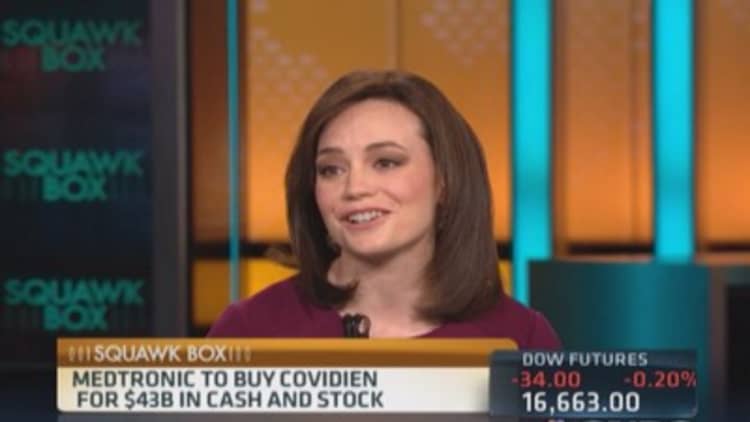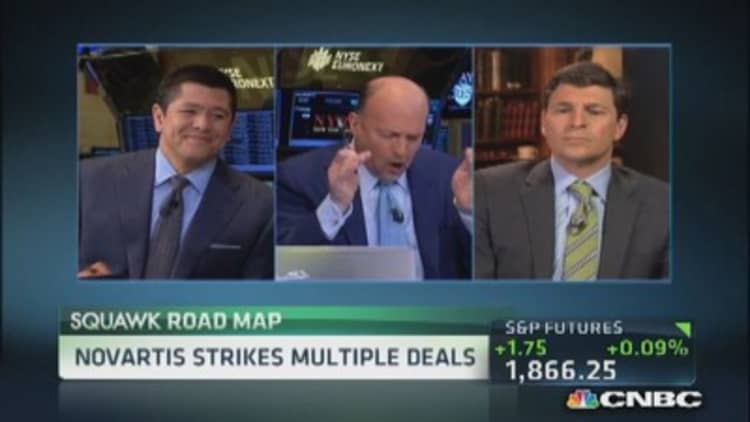
Medtronic's deal to buy Covidien for $42.9 billion may just be the first domino in a lineup that consolidates the medical-device industry.
The acquisition, announced Sunday night, brings together the No. 4 and No. 8 players in medical devices to create the second-largest company in the industry, after Johnson & Johnson, according to Wells Fargo analyst Larry Biegelsen. While Medtronic will reincorporate in Covidien's home country, Ireland, in yet another inversion to take advantage of lower taxes outside the U.S., this deal is driven by more than tax considerations.
Read MoreMedtronic's$43B Covidien deal—and Irish tax move
"We believe that the Covidien deal is being driven by the need for Medtronic to have access to its OUS [outside the U.S.] cash, management's interest in becoming more relevant to hospitals by gaining scale across multiple segments of medical technology, and cost savings," Biegelsen wrote in a Monday research note. Medtronic has about $14 billion in cash, most of it outside the U.S.
Gaining scale is particularly important for medical-device companies as the Affordable Care Act takes hold and hospitals and payers become increasingly cost-conscious: Getting bigger provides more negotiating power. A similar shift is taking place among drugmakers, which have sought to consolidate power in a series of deals this year, including a three-way pharma swap in April that gave Novartis the cancer business from GlaxoSmithKline, GSK the vaccines business from Novartis, and Novartis's animal-health unit to Eli Lilly.
"We expect to see additional consolidation in the medical device industry over the next few years because the power structure of medicine is shifting from the device manufacturers to the healthcare providers and payers as hospitals merge and payers increasingly wield more power in healthcare decisions," Biegelsen wrote.

Medtronic's deal for Covidien, he said, makes an acquisition of London-based Smith & Nephew by U.S.-based Stryker more likely. The Medtronic announcement comes after some consolidation has already taken place: Zimmer bought Biomet earlier this year for $13 billion, while J&J bought Synthes in 2011 for $21 billion. Other logical consolidators, Biegelsen said, are Johnson & Johnson, Abbott Laboratories, Zimmer-Biomet, Becton Dickinson and St. Jude.
Of course, the tax implications of the deal can't be ignored—if only because it's another multibillion-dollar reminder to Congress that these inversions aren't going away under current tax policy. Bankers expect these deals to mount as companies fear missing out on a tax edge being taken advantage of by competitors; two bills in Congress and a proposal from the White House seek to make the inversions harder to do, according to Reuters, and each additional transaction brings extra scrutiny to the practice.
—By CNBC's Meg Tirrell

